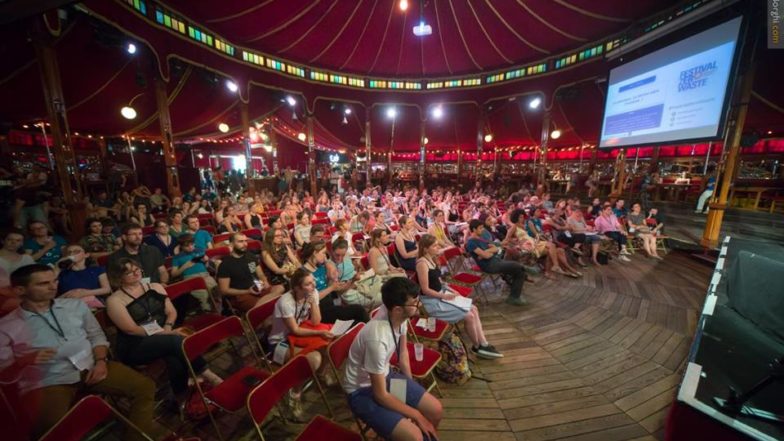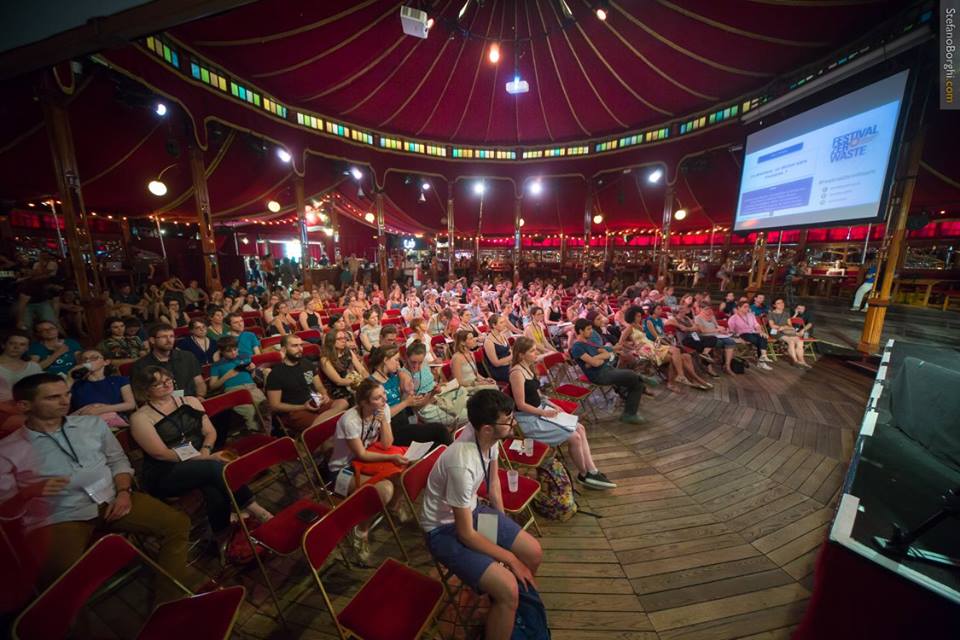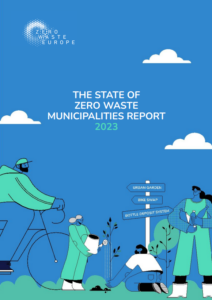Zero Waste France’s festival grows bigger and stronger

The Zero Waste Festival served as a catalyser of conversations, debates and exchange of ideas that can help the Zero Waste movement to grow bigger.
 The second Zero Waste Festival organised by our member Zero Waste France took place in Paris from the 28th to the 30th of June. This year’s festival was interactive, incorporating not only talks but also workshops, panel discussions and entertainment around zero waste solutions. The comprehensive range of topics covered successful zero waste stories from pioneer cities such as San Francisco and best practices from Mediterranean islands, but also other current issues like that of superfluous Black Friday sales.
The second Zero Waste Festival organised by our member Zero Waste France took place in Paris from the 28th to the 30th of June. This year’s festival was interactive, incorporating not only talks but also workshops, panel discussions and entertainment around zero waste solutions. The comprehensive range of topics covered successful zero waste stories from pioneer cities such as San Francisco and best practices from Mediterranean islands, but also other current issues like that of superfluous Black Friday sales.
Zero Waste Europe participated with Ferran Rosa, Delphine Lévi Alvarès, Esra Tat and Enzo Favoino covering key conversations on the circular economy package, plastic pollution, zero waste cities and the rise of the zero waste movement.
Ferran Rosa, our Waste Policy Officer, took part in a session on the main policy and legal changes coming from Europe, and how this will impact French waste management sector. The discussion touched upon the main objectives and obligations of the circular economy package, as well as the new legislation on single-use plastic. More broadly, the conference served to reflect on the importance for environmental NGOs to be part of the European policy debates and to push for further ambition.
Our @ferranrosa presented today the European #circulareconomy package and its implications for the implementation of #zerowaste policies in Europe at the #FestivalZeroWaste pic.twitter.com/PXCUmT57Xu
— Zero Waste Europe (@zerowasteeurope) June 29, 2018
Delphine Lévi Alvarès, the Coordinator of Break Free From Plastic Europe and the Rethink Plastic Alliance, participated in a session about plastics as a global issue, sharing the stage with the researcher and author Baptiste Monsaingeon. She highlighted how plastic pollution does not start when plastics enter the environment, but happens along the whole value chain. The debate focused a lot on the consequences of the Chinese ban on the export of scraps plastics and on other Asian countries which are now overwhelmed by plastic waste, and how it teaches us that we cannot recycle our way out of plastic pollution, and that prevention has to be our main focus. She insisted on the need for a generalised producer responsibility in terms of redesign of products and coverage of the waste collection and management costs. The panel concluded that plastic waste is one big symbol of our “poubellocène” [1] era, and will be the sad trace we will leave behind us for the next generations if we do not reverse the trend now.
At #FestivalZeroWaste our @delphinelevialv debunks the myth of plastic recycling and explains the work of #breakfreefromplastic movement members. pic.twitter.com/1a6rLO4gVx
— Zero Waste Europe (@zerowasteeurope) June 30, 2018
Enzo Favoino, the Chair of our Scientific Committee and Esra Tat, our Network and Development Coordinator, took part in a session on the development of zero waste cities. They shared key insights on the best practices from Italy and around the world, sharing the panel with Robert Reed from Recology (San Francisco). They put emphasis on the multi-stakeholders approach of zero waste strategies at the local level, involving local authorities, the civil society and local businesses (for more information about it, see our Zero Waste Cities programme in Europe). Enzo Favoino was also invited to share the secret behind the success of the zero waste strategies in Sardinia in a panel on Mediterranean Islands, showing that, even in a context of “waste crisis”, local authorities can reach ambitious targets starting from the separate collection of organic waste.
Our @enzofavoino quoting @zerowasteeurope's director @JMSimonL about the implementation of the #zerowaste programme in #Sardinia: "the difference between utopia and what we want to achieve is the political will" #islands #zerowastecities #FestivalZeroWaste pic.twitter.com/dcp2ajaAqp
— Zero Waste Europe (@zerowasteeurope) June 29, 2018
Finally, Esra Tat moderated a session with zero waste organisations in French speaking countries, with participants from Zero Waste Belgium, Zero Waste Switzerland and l’Association Québécoise Zero Déchet. The panel explored the patterns behind the fast-growing zero waste movement in these countries, including an increasing awareness among the general public and the further development of zero waste business solutions (for a concrete example, see our latest case study on reusable containers for take-away food in Switzerland).
Our @EsraDT on stage to facilitate a panel with #ZeroWasteBelgium @ZeroWasteCH and #ZeroWasteQuebec on #zerowaste in the French speaking at the #festivalZeroWaste ???? pic.twitter.com/o4sbxfwVmx
— Zero Waste Europe (@zerowasteeurope) June 30, 2018
The Zero Waste movement has many facets, and Zero Waste France’s successful Zero Waste Festival covered many of them. What’s more, the festival served as a catalyser of conversations, debates and exchange of ideas that can help the Zero Waste movement to grow bigger and reach more and more people. So far, one thing is clear: there is a lot more left to be done, but that is fine because, as our Enzo Favoino says, “Zero Waste is a journey, not a destination”.

[1] See Baptiste Monsaingeon’s book: “Homo detritus”, éd. Seuil, 2017“So far, one thing is clear: there is a lot more left to be done, but that is fine because, as our Enzo Favoino says, zero waste is a journey, not a destination”.


